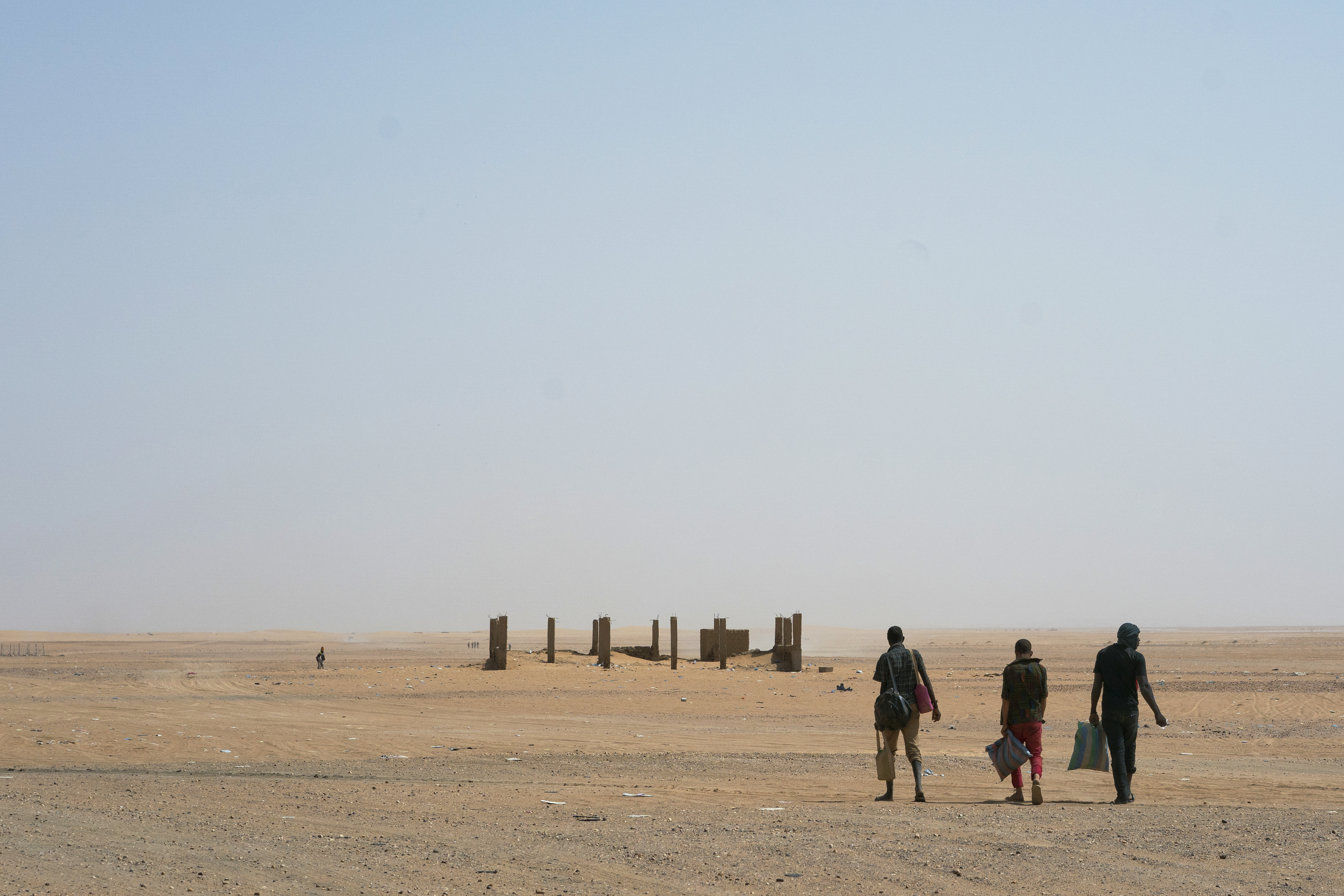Three men head north toward Algeria after crossing the Assamaka border post in northern Niger, June 3, 2018. Niger is the largest country in West Africa, geographically, and it doesn’t have the kind of housing infrastructure or public transportation system that leads to as much mixing of people as elsewhere. Those are just some of the factors playing into the fact that Niger has seen few cases of the coronavirus since the pandemic started.
When Niger experienced its first COVID-19 cases in March of 2020, the country quickly locked down, shut borders and closed worship centers.
The government also set up COVID-19 centers and handwashing stations.
Fast-forward a year and a half: Niger has only recorded a cumulative 5,500 infections and fewer than 200 deaths, far below the annual toll from malaria. The country’s COVID-19 rates continue to be low.
“We have fewer than 20 active cases per day, currently, and those are cases who are not hospitalized.”
“We have fewer than 20 active cases per day, currently, and those are cases who are not hospitalized,” Dr. Brah Souleymane told The World, in French.
Related: Russia tests vaccine science by combining Sputnik and Astrazeneca in new trial
Souleymane has been on the front lines of these efforts as an internist at the General Referral Hospital in Niger’s capital, Niamey. He has overseen sorting and admitting COVID-19 patients.
Niger’s main wave of the coronavirus happened in the winter, but still, for the most part, he said, its COVID-19 wards have been relatively quiet. Even so, he and other experts warn that the country could still be vulnerable and stressed the need for ongoing vigilance.
Although there are plenty of unknowns about the coronavirus in Niger, lots of factors play into its remarkably low levels of COVID-19, according to Souleymane and others. Niger is the largest country in West Africa, geographically, and it doesn’t have the kind of housing infrastructure or public transportation system that leads to as much mixing of people as elsewhere.
“Our way of life is different and doesn’t facilitate contamination,” Souleymane said, adding that people live in large lots that are spread out.
Related: Cuba’s promise of a homegrown COVID-19 vaccine
People often sleep outside. It’s also one of the hottest places in the world, and is mostly desert.
Niger has a population of about 25 million, but it leans young. At least half are under the age of 15 and he says that could be a factor in the low rates of the coronavirus there, too.
Souleymane said that even if many COVID-19 cases get missed, they likely haven’t been serious since it hasn’t led to hospitalizations.
“Of course, we are relieved about that. We are glad that we don’t have many hospitalizations,” said Dr. Blanche Anya, the World Health Organization’s representative in Niger.
So far, about half a million people in Niger have received at least one dose of a COVID-19 vaccine. Although the government has been proactive in its response, Anya said it’s hard to know the full scope of the virus since widespread testing isn’t happening.
The virus that is circulating may not be as aggressive as it is elsewhere, she said, but if that changes, the situation could become extremely challenging.
She said that Niger is dealing with other big issues that would compound an outbreak of the coronavirus: Violent insurgencies and widespread poverty have impacted millions of people throughout the country. It has led to displacement, hunger and the closure of nearly 400 schools.
Related: Will Ghebreyesus’ pandemic report card earn him a second WHO term?
Infections aside, the pandemic has also had serious health and socioeconomic impacts across the region.
But as the days and months go by, it’s hard to keep people thinking about COVID-19, Anya said. Many people have dropped precautions.
“We don’t have many people wearing masks for example, and where they have put the [station] for handwashing, they have disappeared, we don’t see them anymore.”
“We don’t have many people wearing masks for example, and where they have put the [station] for handwashing, they have disappeared, we don’t see them anymore,” Anya said.
Researchers say they need to better understand the scientific and social factors that make it seem like Niger has COVID-19 under control right now.
There is a lot to investigate, according to Dr. John Nkengasong, director of the Africa Centers for Disease Control and Prevention.
He’s watched the virus spread across the continent in recent months in places such as Liberia, Uganda and Namibia, which didn’t experience big outbreaks initially.
“This is a very treacherous virus,” Nkengasong said at a recent press conference.
Africa is experiencing its most serious surge of COVID-19 to date, he said, adding that it’s dangerous to conclude that Niger is totally safe, he said.
“I’m a virologist for over three decades, and viruses who tend to give you that foresense of complacency seed themselves into the population and then explode,” Nkgengasong said.
Souleymane, at the General Referral Hospital in Niger’s capital, is under no illusions either. Despite all the factors in his country’s favor, Souleymane doesn’t think it’s in the clear or somehow immune to COVID-19.
“In the face of the current resurgence of a new variant, we still remain careful, and we still remain on alert,” he said.
